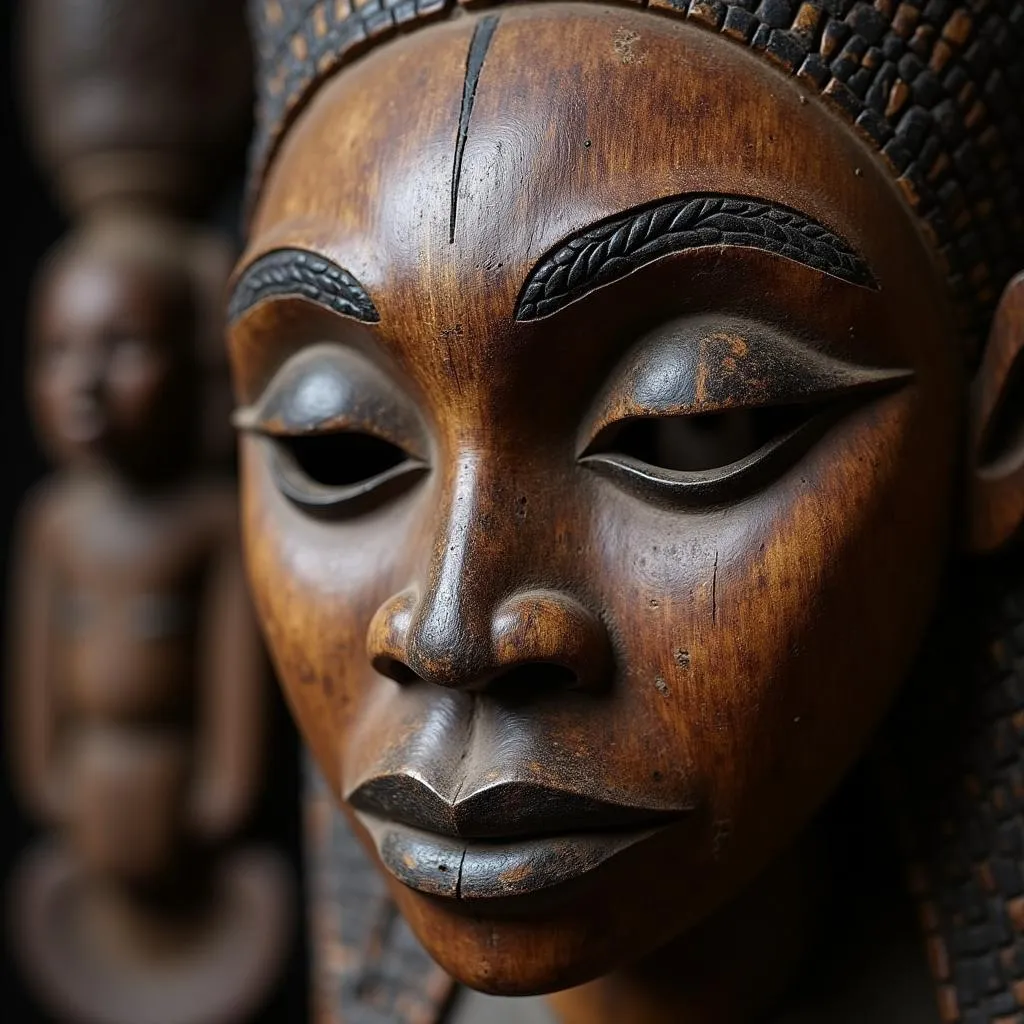Unveiling the Stark Reality of African American Slavery Facts
African American Slavery Facts represent a harrowing chapter in human history, a period of immense suffering and injustice that continues to shape the social, political, and economic landscape of the United States. This article delves into the brutal realities of this institution, exploring its origins, evolution, and lasting impact. We aim to provide a comprehensive understanding of this crucial period by examining key facts and figures, personal accounts, and the ongoing struggle for equality and justice.
The Transatlantic Slave Trade: A Brutal Beginning
The transatlantic slave trade, a horrific enterprise spanning centuries, forcibly transported millions of Africans across the Atlantic to the Americas. These individuals, ripped from their homes and families, were subjected to unimaginable cruelty and dehumanization. The conditions aboard the slave ships were appalling, with disease, starvation, and violence rampant. This forced migration and the subsequent enslavement of Africans laid the foundation for the institution of slavery in the Americas, a system built on exploitation and racial prejudice. After arriving in the Americas, enslaved Africans were sold as property and forced into labor on plantations, primarily cultivating cash crops like tobacco, cotton, and sugar. Their lives were marked by constant hardship, brutal treatment, and the denial of basic human rights. The legacy of this brutal trade continues to resonate today. Check out this resource on African King and White Slaves for a different perspective on slavery.
Life Under Slavery: African American Slavery Facts Reveal the Harsh Realities
Daily life for enslaved African Americans was characterized by relentless toil, violence, and the constant threat of family separation. They worked long hours in grueling conditions, with little to no rest or compensation. Physical and sexual abuse were commonplace, and enslaved individuals had no legal recourse or protection. Families were often torn apart, with children sold away from their parents and spouses separated. Despite the horrors they faced, enslaved African Americans maintained their cultural heritage through storytelling, music, and religious practices, acts of resistance that provided solace and hope in the face of adversity. You can explore more about the history of African Americans at the African American Museum in Cincinnati Ohio.
Resistance and Abolition: The Fight for Freedom
Despite the oppressive conditions, enslaved African Americans continuously resisted their enslavement. This resistance took many forms, from passive resistance like slowing down work or feigning illness, to more overt acts like running away and participating in rebellions. Figures like Nat Turner and Harriet Tubman became symbols of hope and defiance, inspiring others to fight for their freedom. The abolitionist movement, both within and outside the enslaved community, gained momentum throughout the 19th century, advocating for the end of slavery. This movement played a crucial role in ultimately leading to the Civil War and the Emancipation Proclamation, which declared the freedom of enslaved people in Confederate-held territories. For poignant reflections on this period, consider reading African American Slavery Quotes.
The Legacy of Slavery: African American Slavery Facts and Their Continued Relevance
The legacy of slavery continues to cast a long shadow on American society. The systemic inequalities that exist today in areas like education, housing, and the criminal justice system are rooted in the historical injustices of slavery. Understanding African American slavery facts is essential for comprehending the present and working towards a more just and equitable future. The fight for racial equality and social justice continues, and it is crucial to acknowledge and address the ongoing impact of this dark chapter in American history. Consider visiting the African Burial Ground National Monument NYC for a tangible connection to this history.
African American Slavery Facts: A Continued Fight for Justice
African American slavery facts underscore a history of oppression and resilience. This period reminds us of the importance of fighting for justice and equality for all. By understanding the past, we can better equip ourselves to address the present and build a future free from the shackles of racism and discrimination. Explore more about the impact of this era on a trip focused on African American History Tour Washington DC.
Conclusion
African American slavery facts paint a stark picture of a brutal and dehumanizing institution. By understanding this history, we can work towards a future where the injustices of the past are never repeated. We must continue to learn, educate, and advocate for a more just and equitable society.
FAQ
-
What was the Middle Passage?: The Middle Passage was the horrific journey enslaved Africans were forced to endure across the Atlantic Ocean.
-
When was slavery abolished in the United States?: Slavery was officially abolished in the United States with the ratification of the 13th Amendment in 1865.
-
What were some forms of resistance to slavery?: Resistance took many forms, including running away, rebellions, and everyday acts of defiance.
-
What is the significance of Juneteenth?: Juneteenth commemorates the announcement of the Emancipation Proclamation in Texas in 1865.
-
How does the legacy of slavery impact present-day society?: The legacy of slavery continues to manifest in systemic inequalities in various areas of American life.
-
What resources are available for learning more about African American history?: Numerous books, museums, and online resources offer valuable insights into African American history.
-
How can I contribute to the fight for racial justice?: Education, advocacy, and supporting organizations working for racial equality are essential steps.
Need more help understanding this crucial period in history? Consider exploring related articles on our website.
For assistance, please contact us at Phone: +255768904061, Email: kaka.mag@gmail.com or visit us at Mbarali DC Mawindi, Kangaga, Tanzania. Our customer service team is available 24/7.



